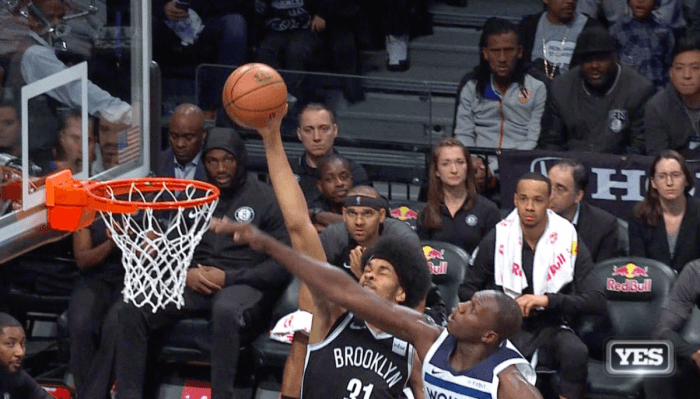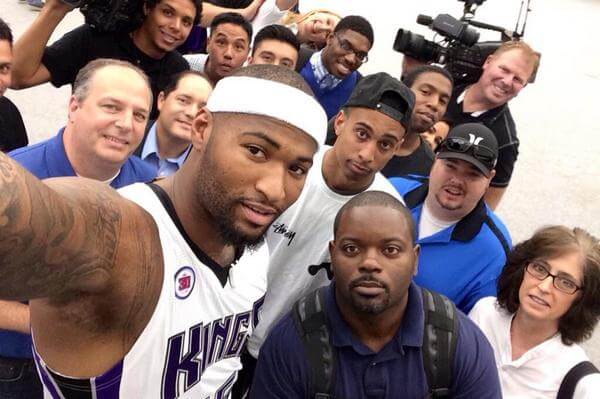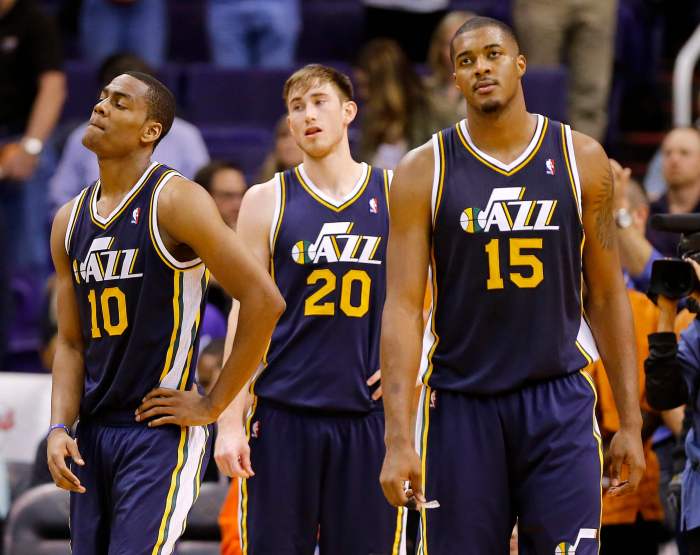Welcome to day five of Joe Johnson Week.
Joe Johnson has been in the NBA for 11 seasons, and I’m not sure many fans really know who he is. Not that they don’t know that he exists, or that they should know him away from the court, but that they don’t know what he is as a player. Fitting, because when he was drafted by the Boston Celtics with the 10th overall pick in the 2001 NBA Draft, many observers didn’t know who he was then, either.
I was 17 years old when the Celtics drafted Johnson, and though I was already an expert in my own mind about the NBA, even I wasn’t sure who he was or what to expect. All I knew about Joe was that he was considered a very promising player and that he had great size, at 6’8” and 235 lbs., and had the ability to play all three perimeter positions. That he could maybe become what Scottie Pippen was, if he had a scorer’s mentality. Sounded great to me!
And true enough, Joe has been promising – and he’s delivered. He’s never failed expectations (unless you’re the Celtics and you give up on your top rookie after a half-season of play behind Paul Pierce) – in fact, he’s surpassed the overall projection of what most thought his career could be, Pippen comparisons and all. He’s become a perennial All-Star, one of the highest-paid players in league history, and is now considered a savior for an NBA basketball team; if I were asked five years ago about Joe achieving any of those feats, I would’ve given a firm negative to any and all of those possibilities.
What most people think of when they think of Joe is either about his brief, meteoric run with Steve Nash’s Phoenix Suns, or either of the insane contracts that the Atlanta Hawks offered him as a free agent in 2005 ($70 million) and again in 2010 ($120 million). I’m not one to judge players on the contracts that they sign, because they have to make the most money that they can, since they have sensitive (and sometimes short) career arcs, and I don’t judge Joe for making his money, fair and square. But his bad rap came because he hasn’t been superstar-transcendent. 18, 4, and 4 is excellent for anyone playing in the best basketball league in the world, but most would assess his value as inflated. Granted, he’s a hard worker, he’s consistently been one of the top 10% of players in the league for the last seven years, and he is skilled as heck –- he’s just not one of those superstar talents that say, leads his epically flawed team to the 2007 Finals, and for that, he’s been set aside and undervalued for what he is: a really, really, really good basketball player.
I feel like he should’ve signed with Phoenix if he wanted a championship run, but what guy turns down $70 million? I also felt that Atlanta did the right thing in keeping Joe around when he became a free agent in 2010, but why offer him $120 million to start out? The answer to that first question is pretty obvious, but the latter query makes less practical sense from a strategy standpoint (and the Hawks’ front office has long made little practical sense), but even that narrows to this truth about Joe – he is so consistently good, that you can guarantee that he’ll win you games and take teams into the playoffs. Maybe $120 million is worth that to some ownership folk.
For the Brooklyn Nets, the reminder of that salary for “Iso-Joe” is a drop in the bucket for the current ownership, and really, when you can guarantee that a talented player will work hard, shoot the lights out, and almost assuredly take your team to postseason competition, somewhere in there, it all makes sense.
And that’s just it – when you look at Joe, questions may abound (“Does he fit?”, “Is he worth the money?”, “Will he change the game?”), but at the end of it all:
Joe just makes sense.


















